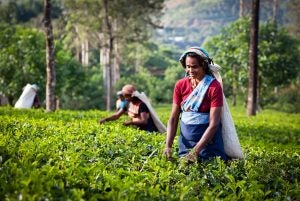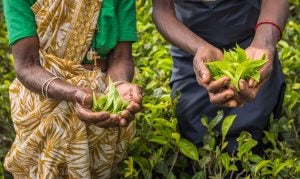Though the push for organic is well-intentioned, Sri Lanka is damaging its economy, health, and food security by not considering a balanced and phased transition
In the movie Idiocracy, an average Joe becomes society’s anointed savior (by default, after waking up from an extended slumber). It seems society has devolved into comedic (and tragic) idiocracy, where empty sloganeering, unchecked corporatism, anti-intellectualism, and a lack of critical thinking skills override common sense. Everything caters to dumbed down, if not baser instincts — and he has the highest IQ of the lot!
Tapped to lead an American renaissance, Joe’s first task from President Camacho (expertly played by the buff and endearing Terry Crews) is to determine what’s behind chronic crop failures, dust bowls, and food shortages.
Turns out, crops are being irrigated with a sports drink called Brawndo — aka the “thirst mutilator” — because it has electrolytes, precisely what plants (and society as a whole) crave. At least, that’s what they’ve been programmed to believe. It has a recognizable green bolt logo that screams electrolytic sophistication to these dullards.

Joe suggests they switch to regular irrigation water. “Like from a toilet?” they skeptically reply. He then gets stuck in a circular and utterly fruitless dialog with the president’s Cabinet over the merits of his plan. Every logical argument is countered with pre-programmed catchphrases — all clever retorts in their eyes (yet humorously hollow) — because it’s the best they can muster.
Weary of the mockery, Joe yields to the lowest common denominator and convinces them that he can talk to plants — and they crave water. In their gullible state, the Cabinet caves. Miraculous ag turnaround complete, world saved.
Plot-wise, it seems that the constant addition of the famed “electrolytes” was the equivalent of salting their own fields, leading to dystopian, barren landscapes. As a one trick pony, Brawndo also lacked the package of essential nutrients necessary for proper plant growth and maturation. And there definitely wasn’t any thought given to pest and disease management.
A certifiable cult classic, there’s some biting undertones about where we’re headed. I’ve best heard the film described as “a movie that started as parody turned documentary.”
Does life imitate idiocratic art? Why would anyone want to pull a real-life Brawndo fiasco?
In Sri Lanka, world renowned for its tea production, an initiative to go all-organic — the textbook definition of a one trick (and gratuitously handicapped) pony — threatens to backpedal agricultural progress.
Though well-intentioned, the president has called for a Green Socio-Economic Model informed by organic clichés (read: slogans) and threadbare arguments against conventional ag. Basically, restrict the importation of chemical (aka inorganic or synthetic) fertilizers and pesticides overnight. Utopia realized?

Some poeple lauded the decision, identifying it as a critical step towards environmental conservation and human health. In their view, it’s a preemptive strike against a clear and present danger.
Yet it’d be a turnabout of ruinous proportions. Despite the gushing endorsement (to be fair, they recommended an alternative approach to reach the same goal), economists predicted massive economic losses — stemming from yield penalties (25 percent for rice and 35 percent for tea) in lieu of inorganic fertilizers. Reduced food security, food safety, and farm income (exacerbating rural poverty) would be the unavoidable consequence.
I’ve been following press and social media chatter from Sri Lankan scientists — agronomists with encyclopedic knowledge of their field, in the field — and their assessment isn’t rosy. Most of the discussion seems to revolve around the fertilizer question.
Thirty national experts wrote to the president outlining their concern over this seismic policy shift. While they recognize the goals of the president’s program, they propose a phased, consultative approach — with actual experts — rather than cold turkey, emotive mandates.
Indeed, organic fertilizers are only so useful. The sheer weight and trivial nutrition they provide (synthetic fertilizers are pound for pound much more nutrient dense) would complicate handling and transport, and necessitate more labor to apply. Despite that, some unscrupulous vendors in nearby India have made outrageous marketing claims. For example, that their organic fertilizer is 62 percent nitrogen (a physical impossibility)! No doubt such scams would make landfall in Sri Lanka.
Yet some leaders (the same ones applauding the organic mandate) estimate that tag-teaming (legitimate) organic fertilizer with recommended doses of chemical fertilizer would increase overall farm profitability by 16 percent.
The reality is that there’s room for both in an ecologically conscious system. Unlike Brawndo, there are some redeeming qualities about organic fertilizer. It often functions more like a soil amendment. It provides intangibles that inorganic fertilizers can’t, and vice versa.
Organic adherents crow about how synthetic fertilizers “kill” the soil thanks to supposedly harsh chemistries. I’ve seen no such evidence at the family farm, where we’ve mindfully applied both organic and inorganic fertilizers for more than 70 years. All we see is a verdant green ecosystem teeming with life.
There’s no reason to believe otherwise in Sri Lanka. Like many developing countries, it’s at a crossroads. But the sensible trajectory isn’t that far off. One that meets goals without upending the system. Rather than play the chemophobe game, tighten the rules and institutions that govern an evolving ag infrastructure. Technology and education will deliver the desired Green outcomes “organically” (pun intended).

But why is Sri Lanka’s government pushing this organic mandate now? Unintended consequences. Generous governmental subsidies have encouraged the importation of subpar chemical fertilizer, full of impurities. Yet it seems more prudent to regulate the import and use of fertilizers over time. Enforce strenuous quality assurance measures, encourage the use of slow release formulations (for a more metered plant feed, like an IV), and incentivize the mainstreaming of precision ag over the longer term when possible.
While the most strenuous objections so far have come from scientists concerned about limiting fertilizer options, there’s also the pest angle. The Food and Agriculture Organization of the United Nations estimates that as much as 40 percent of the world’s agricultural crops fall prey to voracious critters each year. Besides robbing the most vulnerable of food security, it deprives them of their primary source of income. All in the name of going (Brawndo) green.
Granted, the sale of pesticides in Sri Lanka is very laissez faire. Too much so. A more pharmacy type sales approach, paralleling other countries with general use (e.g. over the counter) and restricted use (e.g. “prescription” only with applicator training) would be prudent.
Additionally, Sri Lanka’s Extension service should be strengthened to provide impartial, evidence-based advice to farmers. Currently, many farmers rely on the dubious advice of consultants attached to agrichemical companies, who tend to “overprescribe” a concoction of inputs in their own self-interest.
Forget opiates, organic mandates are a righteous dose of real-life Brawndo for the masses. Why glorify inefficiency? It’s easy to become enamored with an idea, but not the implemented reality of said idea. Be wary of fly by night initiatives peppered with sloganism. In the marketplace of ideas, 100 percent organic mandates clearly fall flat.
Tim Durham’s family operates Deer Run Farm — a truck (vegetable) farm on Long Island, New York. As an agvocate, he counters heated rhetoric with sensible facts. Tim has a degree in plant medicine and is an Associate Professor at Ferrum College in Virginia.



